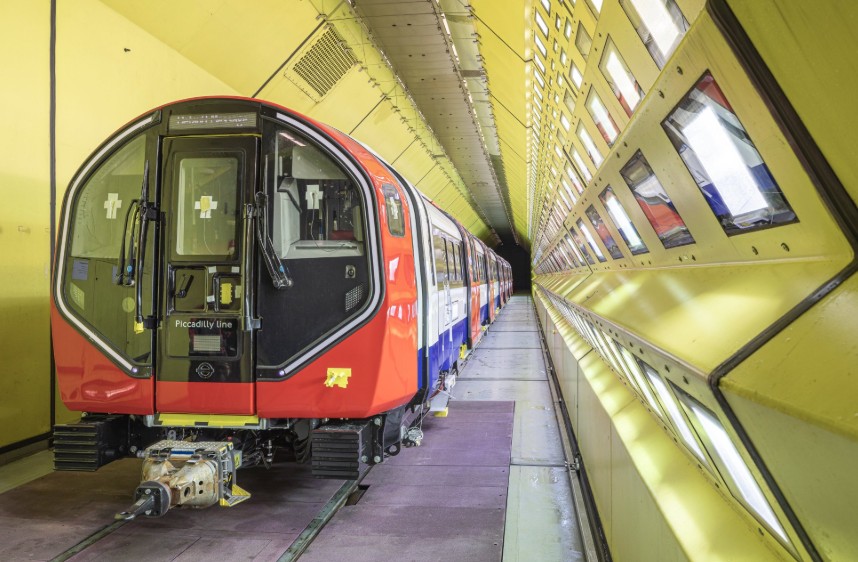Piccadilly Line Disruption: Storm Benjamin Causes Further Train Damage
London’s Piccadilly Line is facing significant disruptions following the impact of Storm Benjamin, which has led to extensive leaf fall and subsequent damage to trains.
As a result, services between Rayners Lane and Uxbridge have been suspended, with passengers advised to use the Metropolitan Line for alternative routes.
The issue stems from the accumulation of leaves on the tracks, which, when compressed by train wheels, create a slippery mulch.
This condition, known as “wheel flats,” occurs when brakes are applied but the wheels slide, causing erosion on the track and damage to the trains.
This phenomenon has been particularly problematic for the Piccadilly Line, which operates through areas with dense tree cover, especially between Rayners Lane and Uxbridge.
Transport for London (TfL) reported that the existing fleet of Piccadilly Line trains, some of which are nearly 50 years old, has been severely affected.
The damage has led to a shortage of available trains, prompting the suspension of services on this section of the line.
This is not the first time the Piccadilly Line has been impacted by leaf fall. In the previous year, a similar situation occurred, leading to a two-and-a-half-month closure between mid-November and the end of January.
The recurrence of these issues highlights the ongoing challenges TfL faces in maintaining service reliability during the autumn months.
In response to these recurring disruptions, TfL has outlined a “robust action plan” aimed at mitigating the impact of leaf fall.
This plan includes clearing trackside vegetation and deploying specialist engineering trains along affected sections.
Additionally, TfL has expedited the introduction of a new fleet of Piccadilly Line trains, originally scheduled for late 2025, to reduce the vulnerability of the line to leaf fall-related issues.
Despite these efforts, the immediate suspension of services between Rayners Lane and Uxbridge remains in effect, with no clear timeline for restoration.
Passengers are urged to check the TfL website or the TfL Go app for the latest updates and alternative travel options.
The situation underscores the broader challenges faced by urban transit systems in adapting to seasonal weather patterns and highlights the importance of investing in infrastructure that can withstand such environmental factors.
For now, commuters are advised to seek alternative routes and stay informed through official TfL channels.






